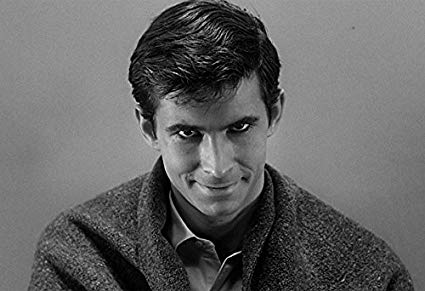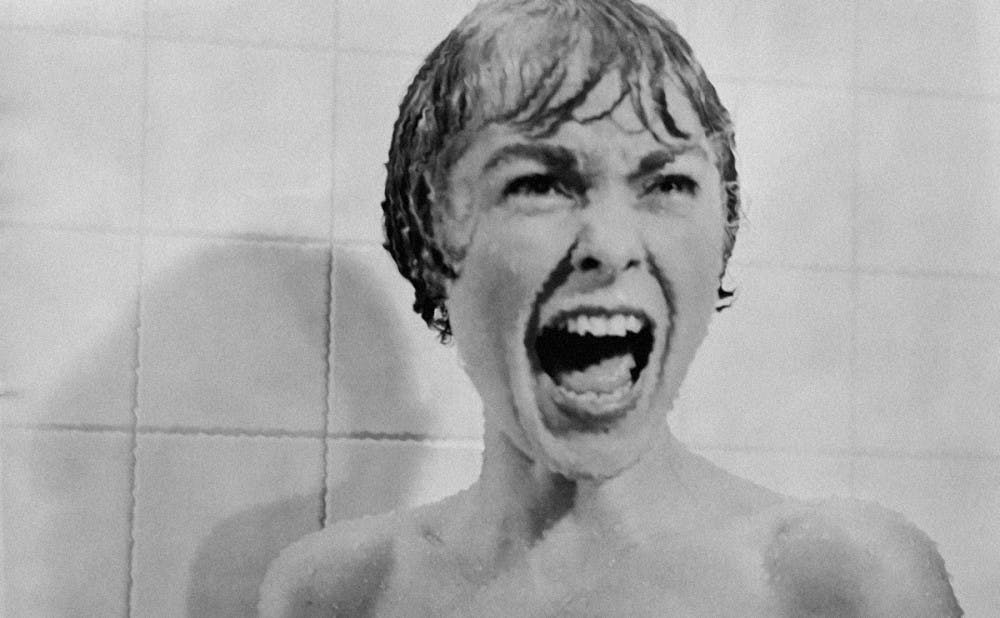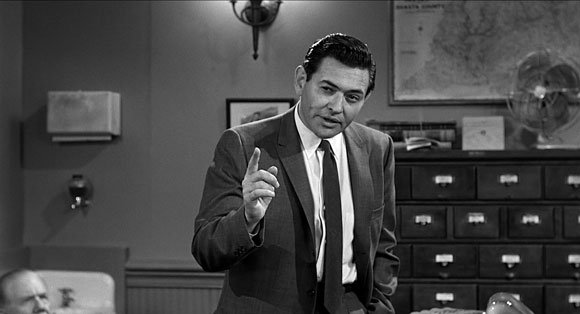Psycho (1960): Review
by Joshua Hess

A thrilling classic that continues to shock and excite to this very day.
What more can be said about Alfred Hitchcock's classic film that hasn't been said before? So many modern horror films owe themselves to Psycho whether they would like to admit it or not. In a plethora of ways, this film broke the mold and shaped the horror industry for decades to come.
Why It's So Influential
Psycho helped introduce multiple ideas that have now become the norm for modern horror to use for their own. One of these is the jump scare. I've said in my previous reviews that I find jump scares to be gimmicky and played out, but I give Psycho a pass because this concept had not been executed in a way like this before. I also enjoy the jump in this film because there is only really one jump in the entirety of the movie. Nowadays, every horror film is so overly saturated with constant spooks and loud music cues that I no longer enjoy modern horror, even if a handful of them often have a decent premise.
Another big concept that Psycho introduced was the notion that a story did not always have to have a definite main character. Within the first half of the movie we are introduced to Marion Crane played by Janet Leigh. The plot is set up so we believe that she will be the heroine of the film. We have a subplot about Marion stealing $40,000 from her employers so she will have enough money to live a life of luxury with her boyfriend, Sam Loomis. She runs away with the money to avoid police detection and picks a room at the Bates Motel to spend the night. From the get go we know that Marion is in danger, not just because of the police that are following closely behind, but because of the creepy welcome that Norman Bates gives her upon her arrival. (On a side note, Anthony Perkins gives one of the best performances I have ever seen on screen. All of his subtle movements and the look in his eyes adds so much to the overall tension and drama of the movie that there is no question for why Psycho is regarded as a classic.) When the infamous shower scene finally rolls around, you know exactly what is about to happen, but you sit there hoping that somehow everything will be alright for Marion in the end. Unfortunately for her, Norman stabs her to death in the shower and drags her body out of the room. Our plot suddenly takes a dark turn, because we as an audience are now following Norman as he cleans up the murder scene. At the time, the world was shocked to find out that Marion was not in fact the main character, and even more shocked to find out how grisly her murder is.

Of course, I have to mention the shower scene itself. This scene is so famous and well done that film appreciators such as myself have spent days analyzing it. I once had a film class where we dissected this scene alone and discussed it in great length. There are documentaries, YouTube videos, and entire articles dedicated to just this one 45 second long scene. There were 78 camera set-ups and 52 edits made, hence the name of the documentary, 78/52: Hitchcock's Shower Scene. Despite the vulgarity of this scene and the image that you paint in your mind of a naked woman being stabbed to death, you will never see a lewd area of skin or a knife entering the flesh. All of the separate cuts mixed with the extreme close ups and the deafening screech of the string instruments in the background, this scene is exemplary.
Finally, this movie ushered in the idea of a crazed human killer that could end up being scarier than a monster counterpart. Horror movie villains at this time consisted of Dracula, Frankenstein's monster, the wolf man, etc. The thought of a scary person in a movie was unheard of at the time. Sure enough, Hitchcock delivered one of the most haunting characters of all time, and Anthony Perkins' performance is one for the history books.
The Ending Holds It All Back
No, I don't mean the revelation that Norman's mother has been dead the whole movie. I mean the very ending where the psychiatrist explains the entire plot of the movie to the surviving characters.

I suppose the reasoning for this scene's existence was Hitchcock thinking that audiences of the time could not understand why Norman Bates would want to kill all of these people or why he kept his mother's skeleton in a cellar. The concept of Psycho was apparently too much for audiences of the time to handle, and unfortunately, this scene has not aged well at all. With films like the recent Joker and Inception, we are no strangers to ambiguity. In fact, most of my favorite films of all time feature moments that cause discussion for what exactly had happened or could happen, but with Psycho there's nothing else left for the imagination. This final scene hands us everything we would ever need to know on a silver platter.
All in all, I think this is one of the best films ever made. Despite the explanation at the end and some effects that haven't aged the best, the overall presentation and story is phenomenal. The soundtrack is definitive of the genre with all of the screechy strings that became a cliche in themselves. The acting was superb, especially Anthony Perkins as Norman Bates and as the voice of his deceased mother. There's so much good with this film that I could write fourteen pages on everything that sticks out, but the explanation definitely holds it back from reaching its full potential.
8/10. Let me know your thoughts on this classic!
